
A YouGov analysis has suggested the UK faces a hung parliament. Here are the key questions:
YouGov's chief scientist Doug Rivers sets out how our general election model – reported in The Times today – works https://t.co/sn4HLwpNfP
— YouGov (@YouGov) May 31, 2017
The polling company’s seat projection study for the Times has resulted in a constituency-by-constituency estimate, which indicates what could happen on a good night and bad night for the Conservatives.
The seat range for the Tories is 274 to 345, with the central estimate being 310 seats – down from the 330 they had before the snap election campaign.
Labour’s central estimate is 257, up from 229.
How reliable is the data?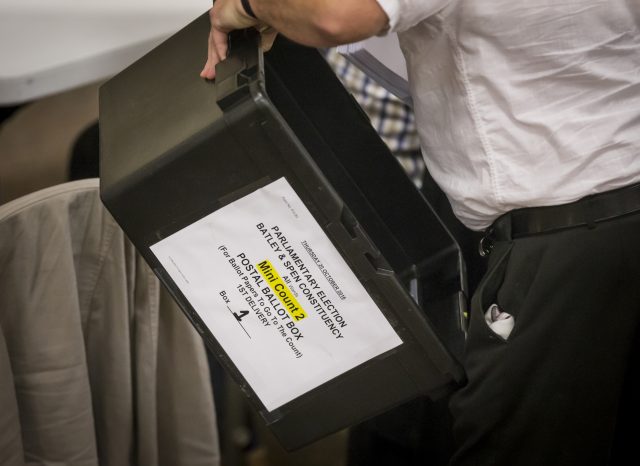
It is difficult to say, with any study merely a guide ahead of the big day. YouGov used a model which analysed data from around 50,000 panellists interviewed on their voting intention over the course of a week.
The pollster said the approach was used during the EU referendum and consistently showed voters backed Leave. But YouGov has also acknowledged the data could change dramatically before polling day on June 8.
The headline figures certainly stand out given previous assumptions and polling data pointing to the Conservatives securing a majority.
What has the reaction been to the YouGov projection?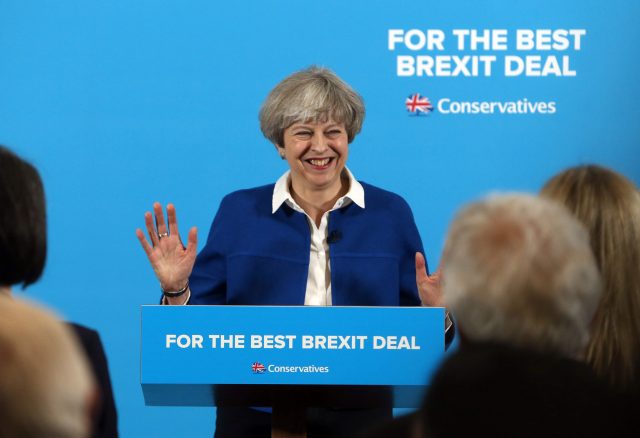
Prime Minister Theresa May has said the “only poll that matters” is the one on June 8 while Labour’s Angela Rayner dismissed the research, insisting Labour is “in it to win it”.
What is the state of play according to other polling companies?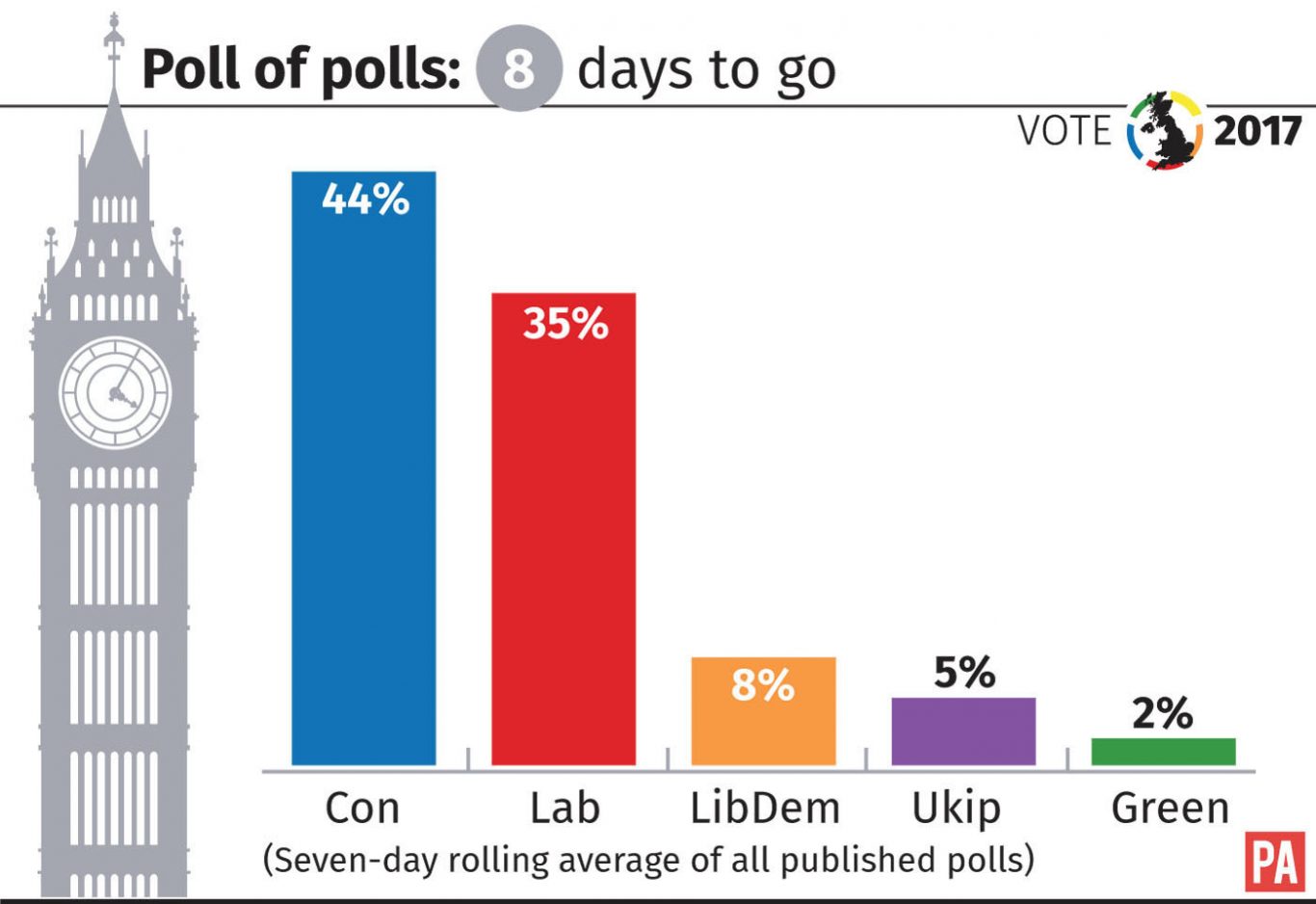
A collective “poll of polls” by the Press Association, based on a seven-day rolling average of all published polls, places the Tories on 44%, Labour 35%, the Liberal Democrats on 8%, Ukip on 5% and the Green Party on 2%. Such a lead indicates the Tories would secure a majority.
How trusted are the polling companies?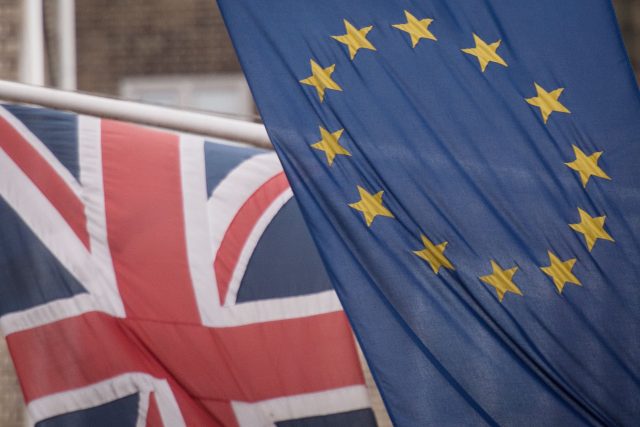
Following the 2015 general election, an independent inquiry was commissioned by the British Polling Council and the Market Research Society.
This emerged after the Tories secured a majority and a 6.5% margin of victory despite polls suggesting a close race.
The inquiry cited unrepresentative sampling with over-representation of Labour voters and under-representation of Tories as contributing to the polling failures.
Remain was also largely predicted to win at last year’s EU referendum before Leave emerged victorious with almost 52% of the vote.
What could influence the vote on June 8?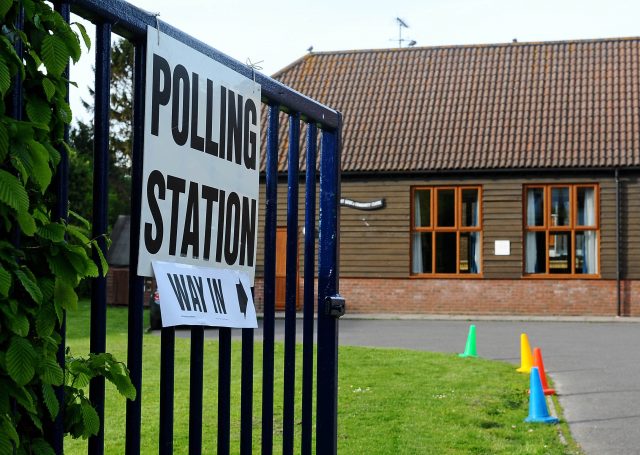
ICM director Martin Boon told the Guardian that his polling company gives the Tories higher leads than others as its methodology “assumes young people will be less likely to vote than older, and less affluent people will be less likely to vote than the wealthy”.
He added: “This has been the general pattern of general elections for an age, and whether you believe our poll findings or those of others will depend on whether or not you think Jeremy Corbyn can actually buck that trend.”


Comments: Our rules
We want our comments to be a lively and valuable part of our community - a place where readers can debate and engage with the most important local issues. The ability to comment on our stories is a privilege, not a right, however, and that privilege may be withdrawn if it is abused or misused.
Please report any comments that break our rules.
Read the rules hereLast Updated:
Report this comment Cancel